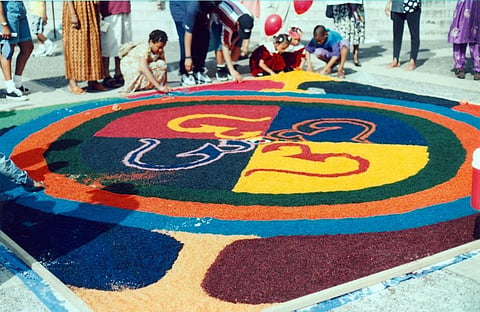While I am still figuring out what it means to be Indo-Caribbean, one thing I have realized during my time at Barnard is that I can no longer be ashamed of my heritage. Yes, it is different from Indian culture, and yes, it is a confluence of African, Indian, and Native cultures, but that doesn't make it tainted and dirty. I love feeling the rhythm of chutney and Soca music flow through me, and feeling the sudden flash of heat on my tongue from the pepper in doubles. Trinidadian-West Indian culture is an incredible and unique hybrid of histories and cultures that I am proud to embody.


